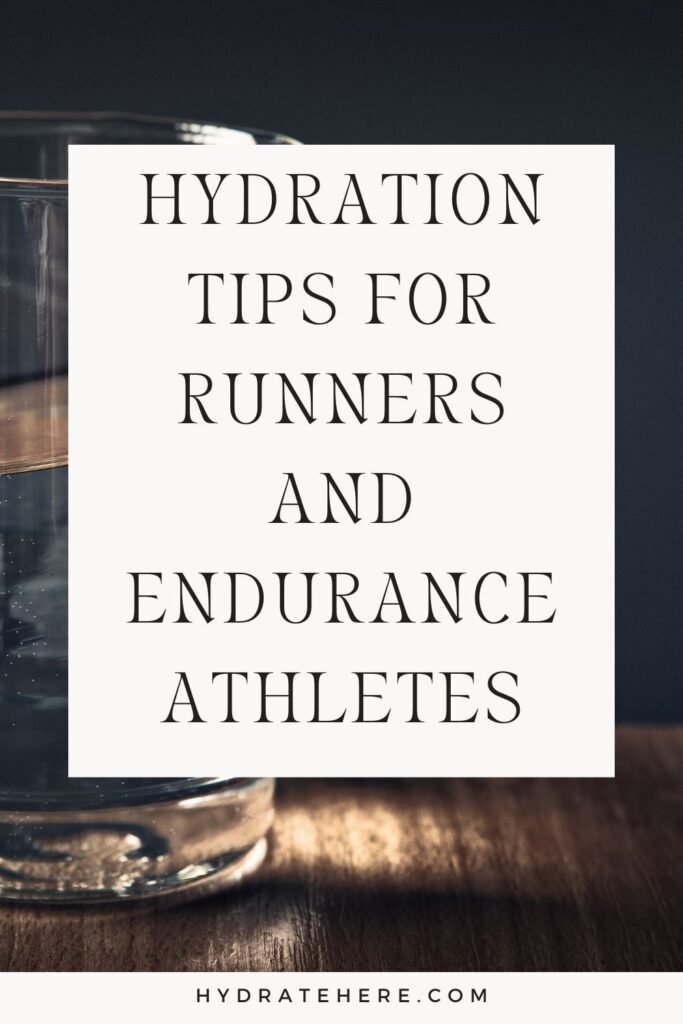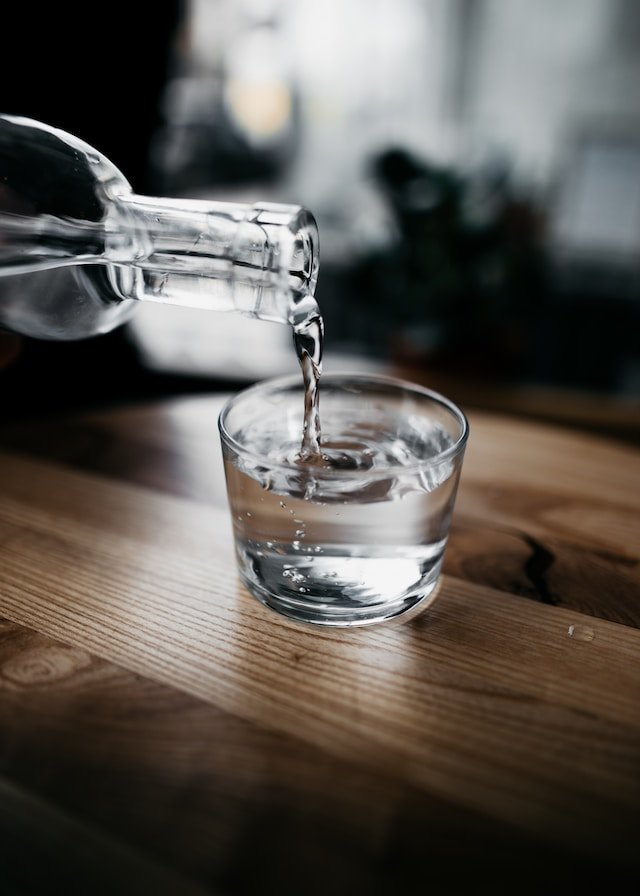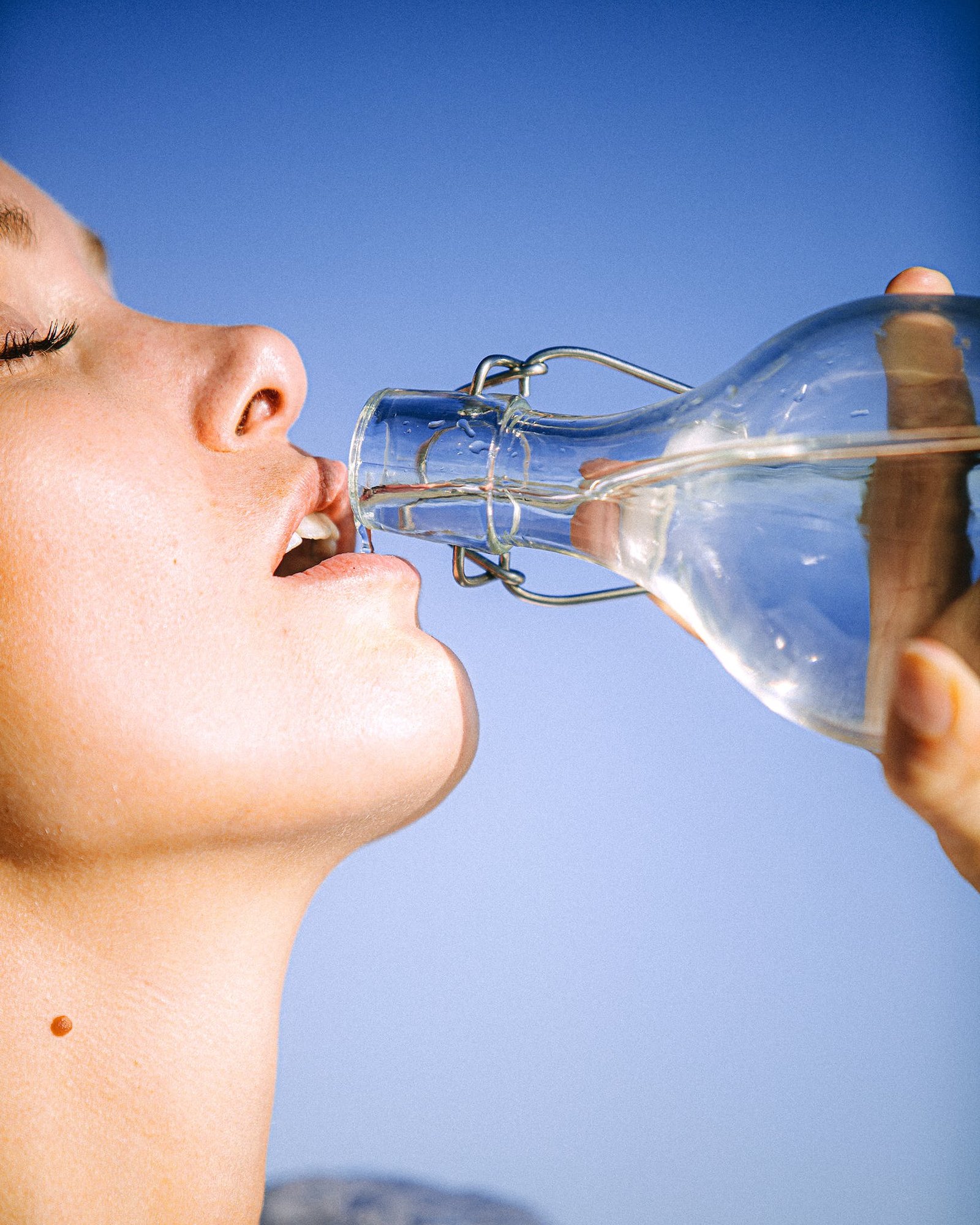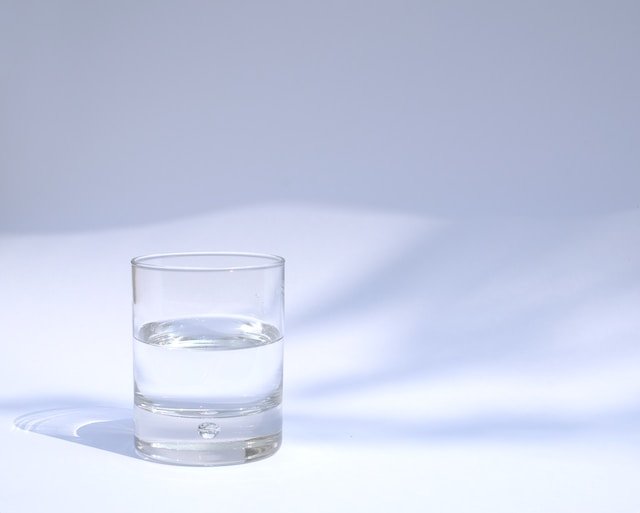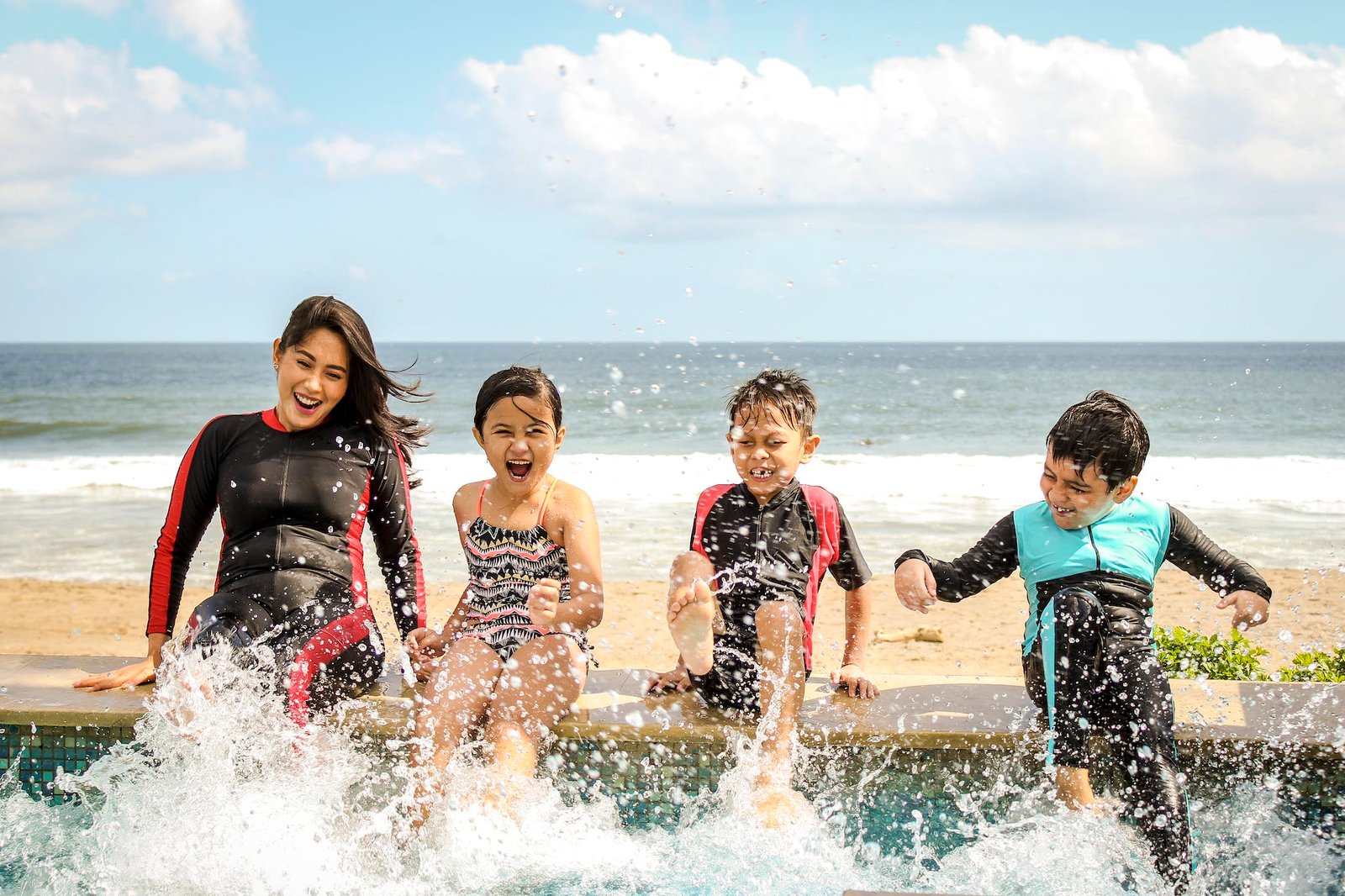Hydration Tips for Runners and Endurance Athletes
There are some affiliate links below, but they are all products I highly recommend. For more info, view my disclosure here.
Looking to step up your running or endurance game? Proper hydration is key to keeping you feeling your best on the track, trail or road.
Below, we’ll provide helpful tips to keep you well-hydrated and performing optimally.
We’ll explore the importance of fluid and electrolyte balance, smart pre-workout and pre-race hydration tactics, and effective ways to stay hydrated during your workouts.
You’ll also learn the smartest post-workout rehydration strategies, plus guidance on sports drinks and supplements.
And we’ll offer simple ways to monitor your hydration levels.
Arm yourself with knowledge and put your best foot forward on race day. With smart hydration habits, you’ll be well on your way to achieving your fitness goals.
Importance of Hydration for Runners and Endurance Athletes
You need to prioritize hydration as a runner or endurance athlete. Staying hydrated is crucial for optimal performance and overall health. When you engage in intense physical activity like running or participating in endurance events, your body loses water through sweat and respiration. This loss of fluids can lead to dehydration, which can negatively impact your performance and increase the risk of heat-related illnesses.
Adequate hydration helps regulate your body temperature, lubricate your joints, transport nutrients to your muscles, and remove waste products. To ensure you stay properly hydrated, it’s recommended that you drink fluids before, during, and after your workouts. Before your run, drink about 16-20 ounces of water or a sports drink to start off well-hydrated. During your workout, aim to drink 6-8 ounces of fluid every 20 minutes. After your run or endurance event, replenish your fluid levels by consuming 16-24 ounces of water or a sports drink for every pound lost during exercise.
Understanding Fluid Balance and Electrolytes
Make sure to stay aware of your fluid balance and the importance of electrolytes while training for long-distance events. Understanding fluid balance and electrolytes is crucial for optimal performance and preventing dehydration. When you exercise, especially for extended periods, you lose fluids through sweat. It’s important to replenish these fluids to maintain proper hydration levels.
Fluid balance refers to the equilibrium between fluid intake and fluid loss. To stay properly hydrated, you should aim to drink enough fluids to replace what you’ve lost through sweat. Electrolytes, such as sodium, potassium, and magnesium, play a significant role in fluid balance. They help regulate the body’s fluid levels and ensure proper functioning of muscles and nerves.
During long-distance events, it’s essential to consume electrolyte-rich drinks or sports drinks to replenish your electrolyte stores. These drinks help restore the electrolyte balance in your body and prevent muscle cramps, fatigue, and other performance issues. Additionally, consuming foods high in electrolytes, like bananas and avocados, can also help maintain electrolyte levels.
Remember to listen to your body and drink when you feel thirsty. Thirst is your body’s way of signaling that it needs fluids. Stay hydrated and maintain your fluid balance to optimize your performance and prevent dehydration during long-distance training.
Hydration Strategies for Pre-Workout and Pre-Race
To ensure optimal performance before your workout or race, it’s important to have a well-hydrated body. Hydration plays a crucial role in preparing your body for physical exertion. When you sweat during exercise, your body loses water and electrolytes, which can lead to dehydration and decreased performance.
So, how can you ensure that you’re properly hydrated before your workout or race?
Firstly, make sure you start hydrating well in advance. Don’t wait until the last minute to drink water. Aim to drink about 16-20 ounces of water two to three hours before your workout or race. This will give your body enough time to absorb the fluids and prevent any discomfort during your activity.
Additionally, consider incorporating electrolytes into your hydration routine. Electrolytes, such as sodium and potassium, help maintain fluid balance in your body. You can consume sports drinks or electrolyte-enhanced water to replenish these essential minerals.
Lastly, listen to your body. Thirst isn’t always an accurate indicator of hydration status. Keep an eye on the color of your urine. If it’s pale yellow, you’re likely well-hydrated. Dark yellow urine may indicate dehydration, so drink more fluids.
Tips for Hydrating During Exercise
During exercise, it’s important to stay hydrated by regularly sipping on water or electrolyte-enhanced beverages. As a runner or endurance athlete, you’re constantly pushing your body to its limits, and proper hydration is essential for peak performance and overall well-being.
When it comes to hydrating during exercise, there are a few tips you should keep in mind.
Firstly, make sure to drink small amounts of fluid frequently rather than chugging large quantities at once. This will help prevent any discomfort or sloshing in your stomach. Aim to take a few sips every 10-15 minutes to maintain a steady hydration level.
Additionally, it’s crucial to listen to your body’s signals. If you start feeling thirsty, it means you’re already dehydrated, so don’t wait until you feel parched to drink. Stay ahead of thirst by hydrating consistently throughout your workout or race.
Lastly, consider incorporating electrolyte-enhanced beverages into your hydration routine. These drinks can help replenish essential minerals lost through sweat and provide a balance of electrolytes to support proper muscle function and hydration.
Recovering and Rehydrating Post-Workout or Post-Race
After your workout or race, it’s important to replenish your body’s fluids and electrolytes to aid in recovery and promote muscle repair. When you exercise, you lose both water and electrolytes through sweat. Rehydrating after your workout is crucial to restore the balance in your body.
The simplest and most effective way to rehydrate is by drinking water. Aim to drink at least 16-20 ounces of water within 30 minutes of finishing your workout or race. If you’ve been exercising intensely for more than an hour, consider replenishing electrolytes as well. Sports drinks or electrolyte-enhanced water can help replace the sodium, potassium, and other minerals lost through sweat. Another great option is coconut water, which is rich in electrolytes and natural sugars.
In addition to hydrating, it’s important to refuel your body with carbohydrates and protein to aid in muscle repair. Consuming a combination of carbohydrates and protein within 30 minutes of finishing your workout or race can help replenish glycogen stores and support muscle recovery. Opt for a snack or meal that contains both, such as a banana with peanut butter or a protein shake with fruit.
Hydration Supplements and Sports Drinks: What You Need to Know
When it comes to choosing hydration supplements and sports drinks, understanding their benefits and ingredients is essential for optimizing your performance. Hydration supplements and sports drinks are designed to replenish the fluids and electrolytes lost during intense physical activity. They contain a combination of water, carbohydrates, and electrolytes, which help to rehydrate your body and provide the necessary fuel to keep you going.
One of the main benefits of hydration supplements and sports drinks is their ability to prevent dehydration. When you sweat, your body loses water and electrolytes, which can lead to decreased performance and even heat exhaustion. These drinks help to replace those lost fluids and electrolytes, keeping you hydrated and maintaining your energy levels.
Another advantage of these drinks is their ability to provide quick energy. Most sports drinks contain carbohydrates, which are a primary source of fuel for your muscles. By consuming these drinks during exercise, you can replenish your glycogen stores and delay fatigue, allowing you to perform at your best for longer periods.
It’s important to note that not all hydration supplements and sports drinks are created equal. Different brands and types may have varying amounts of carbohydrates, electrolytes, and other ingredients. It’s crucial to read the labels and choose a product that best suits your individual needs and preferences.
Monitoring Hydration: Signs of Dehydration and Overhydration
To maintain optimal performance, be aware of the signs of dehydration and overhydration while monitoring your fluid intake. Dehydration can have detrimental effects on your body and performance, so it’s important to recognize the signs early on. If you experience excessive thirst, dry mouth, dark urine, or dizziness, these may be indicators of dehydration. Pay attention to your body and make sure to replenish fluids when necessary.
On the other hand, overhydration is also a concern. While it may seem counterintuitive, drinking too much water can also have negative consequences. Signs of overhydration include nausea, headaches, confusion, and swelling. It’s important to find the right balance and listen to your body’s cues.
To monitor your fluid intake, keep track of how much you drink before, during, and after your workouts. A general guideline is to aim for about 16-20 ounces of water two hours before exercise, and then continue to drink fluids at regular intervals. During exercise, aim for about 7-10 ounces every 10-20 minutes. After your workout, replenish with fluids to restore hydration levels.
